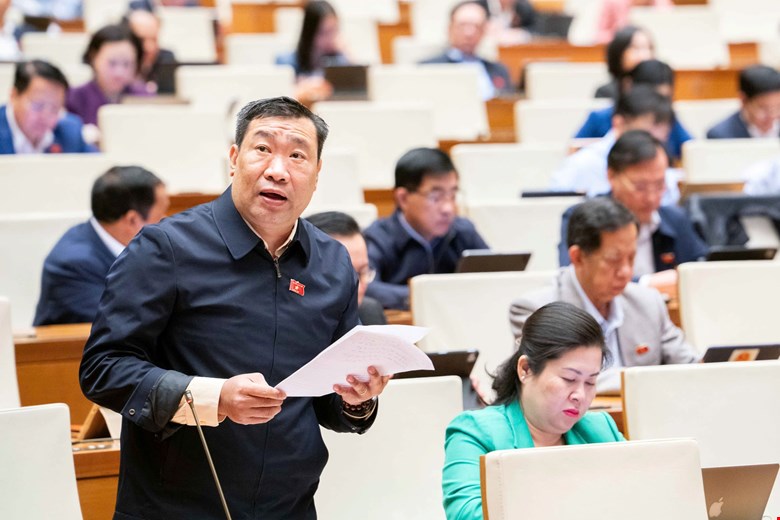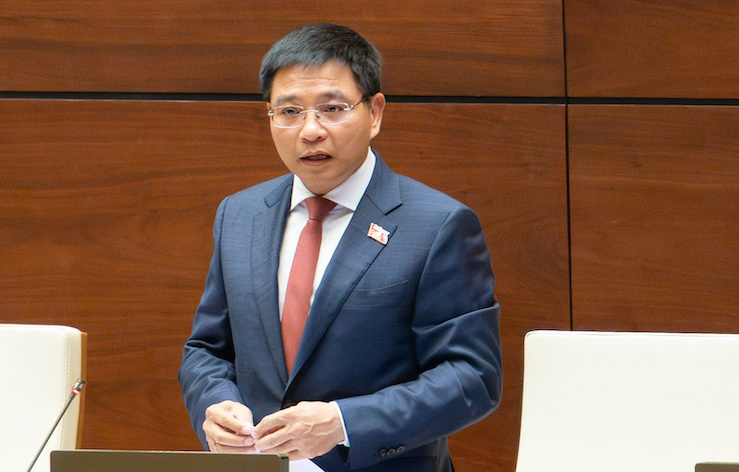Propose additional preferential allowances for people working in the reserve.
On the morning of November 26, the National Assembly discussed in the hall the draft Law on National Reserves (amended).
Regarding the regulation on policies for people working in reserves, delegate Thach Phuoc Binh (Vinh Long Delegation) supported the draft to keep the seniority allowance unchanged with vocational incentives.
According to the delegate, the reality shows that this force works in remote, disadvantaged warehouses, having to be on duty 24/7, ready to provide goods at night, during storms and floods, and to preserve a large amount of state assets.
Therefore, delegate Thach Phuoc Binh suggested that the draft law should add: Responsibility allowance in emergency situations; regional or specific allowances according to terrain; priority for public housing; periodic training on new storage technology.

"This is an honor but also a responsibility of the State towards the reserve guards, who are silent but play a very important role" - the delegate said.
Regarding this proposal, Minister of Finance Nguyen Van Thang said that the draft is currently inheriting and maintaining the regulations on policies for people working in the reserve. This is a policy that has been implemented stably for many years and has not caused any problems.

According to the Minister, this policy is also consistent with Resolution 27 of the Party Central Committee, which is not to add new types of allowances according to the profession. In addition, Conclusion 83 of the Politburo also emphasizes the role of the Government Party Committee in studying and deciding on allowance regimes for cadres, civil servants and public employees in some specialties, especially allowances according to occupations, to overcome unreasonable issues arising in the implementation process.
Strengthening digital transformation in the national reserve sector
Another issue that delegates were interested in discussing was the regulation on research on the application of science, technology and digital transformation, in Article 30.
Contributing opinions, delegate Nguyen Tam Hung (HCMC Delegation) suggested that the drafting committee consider adding the task of developing a smart reserve model to forecast market demand and determine the structure of reserves.
"The application of smart technology helps the state predict risks of scarcity early, increases market regulation efficiency and reduces policy response time" - the delegate said.
Sharing the same view, delegate Le Thi Thanh Lam (Can Tho delegation) said that the draft has not yet covered the new pillars of national security, digital data and digital resources.
Therefore, the delegate proposed to add a provision on digital data reserves and digital resources including platform data, shared data, strategic digital resources, key digital infrastructure and core technology components for the socio-economic and emergency response.
"This addition helps to synchronize with the Government's orientation, keep up with international trends and create a long-term vision for the law, ensuring a modern, flexible and sustainable national reserve in the digital age" - Ms. Lam said.
Continuing to explain, Minister Nguyen Van Thang said that the content of modernizing and digitalizing the management of reserve reserves has been included in the Draft Law.
The general orientation is to modernize management and coordination activities to the maximum, especially enhancing connectivity between warehouses so that when situations arise, we can identify, count and regulate goods intelligently, promptly to necessary areas.
"In addition, regarding the effective date of the law, we have accepted the opinions of the National Assembly Standing Committee and the inspection agency. Accordingly, the Government must submit to the National Assembly a regulation on when the Law will take effect from July 1, 2026" - the Minister said.











